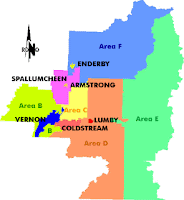Government surveillance.
Snowden leaks.
It's all the news lately, coming on the heels of Julian Assange's Wikileaks.
As reported by the Globe & Mail (K.Yakabuski) December 19th, 2013: "This week, Mr. Snowden said NSA snooping "threatens to become the greatest human-rights challenge of our time." So what--you say--if it's the United States snooping to find terrorists. Of course, then it's okay, with few disagreeing.
The CBC says Canada facilitates the National Security Agency's spying, most notably at the G20 Summit in Toronto in 2010. That's probably okay too, if it helps find terrorists.
Mr. Yakabuski's article, decidedly tongue-in-cheek, was entitled "At least they don't collect data to sell us stuff."
Oh, but even our Canadian government knows far too much about regular Canadians--albeit not linked to a citizen's name. Industry Canada's Office of Consumer Affairs is an insidious bureaucracy whose reports ostensibly "help" set federal government policy...whether it's taxation, interest rates, and so on.
So is CSEC (Communications Security Establishment Canada) spying on Canadians?
Sure they are.
But that's okay if their snooping finds terrorists.
The Globe & Mail article states "the exponentially increasing power of computers has facilitated data collection not even George Orwell could have imagined." Google, Facebook, Microsoft and Twitter were listed.
Snooping sounds less invasive than spying; both are subjective.
It's not until it hits home that one realizes just how invasive it really is.
My own experience yesterday is an example of the insidiousness of non-terrorist snooping.
I had Googled "Bob Gear Revolution SE Stroller" because our daughter is pregnant with her first child (yippeee!), then clicked on the Amazon link that appeared, listing the price and specifications for the child carrier. Some time later, I concluded my computer time by clicking on Facebook to see what my acquaintances had posted of interest.
Imagine my surprise when Facebook's eternal (sigh) advertisements (at the right side of their pages) came up with, in their uppermost advertiser position, "Bob Gear Revolution SE Stroller" by Amazon.com!
EDIT: 3 days later: lookeeee here
Stunned, actually, more than surprised.
Was it the word "revolution"?
It's just any search at all...all tracked.
Personally, the thing that has bothered--no, actually angered--me for a long time is when government's media statements refer to a consumer's discretionary spending. How on earth does government know what is considered discretionary? How does government even know what we spend our money on?
The amount of an individual's income that is left for spending,
investing or saving after taxes and personal necessities (such as food,
shelter, and clothing) have been paid. Discretionary income includes
money spent on luxury items, vacations and non-essential goods and
services.
Discretionary income is derived from disposable income, which equals gross income minus taxes.
Discretionary income is derived from disposable income, which equals gross income minus taxes.
Investopedia.com
Hell, they've got lots of help determining that.
Reports...reports from point-of-sale merchants like Moneris and others.
They track what we buy.
And then some bureaucrat employs the program's logarithms to break it all down.
Because some bureaucrat actually sat down and decided--for me and you--what is and isn't essential.
So what, you say?
Government's reports include statements such as: "For example, the increasing number of senior couples who report spending on recreation and entertainment services (from 68 percent in 1982 to 93 percent in 2002) demonstrates their better finances and health."
Can government really rely on such maybe-spurious information, considering that the Long Form Census is no longer used?
There are lots of seniors who would argue the point that they have better finances and health.
Back to my outrage at snooping.
So how can an individual not let government know just what percentage we're spending on their definition of non necessary items?
Easy.
Quit using plastic.
Except your debit card...go to the bank, use the debit card to withdraw cash.
And spend that cash anywhere you like.
All without government knowing just what percentage of your after-tax income you're spending on "luxuries".
"So did you buy the Bob Gear Revolution SE stroller?" asks Kia.
Yes, but unfortunately that was a luxury.












